“The Fearless” is an extensive investigation by Canadian journalist Mark MacKinnon about the work of Ukrainian Defense Intelligence (GUR) special forces in Afghanistan and during the Russian-Ukrainian war. In an exclusive interview for the National Union of Journalists of Ukraine, Mark MacKinnon talks about creating this material and shares his observations about the war in Ukraine.
The article, which was published on June 6, 2024, in The Globe and Mail, received the prestigious Foreign Press Association Media Award in London in November in the category “Story of the Year in Print and Web Publications.” Judges wrote that story is “an amazing piece of work – more like a book than an article” and that it is “a very complex, well written tale,” “extremely well-researched very human.”
Mark MacKinnon is a senior international correspondent for The Globe and Mail. He has won the National Newspaper Award of Canada seven times, and in 2016 he was named Journalist of the Year in Canada. In recent years, after Mark MacKinnon and the head of the National Union of Journalists of Ukraine (NUJU), Sergiy Tomilenko, accidentally met at a cafe in the Poltava region during their visits to the areas near the front line in March 2023, a fruitful collaboration developed between the Canadian journalist and NUJU — with the union’s assistance, Mr. MacKinnon prepared a story about the work of Izyum journalists.
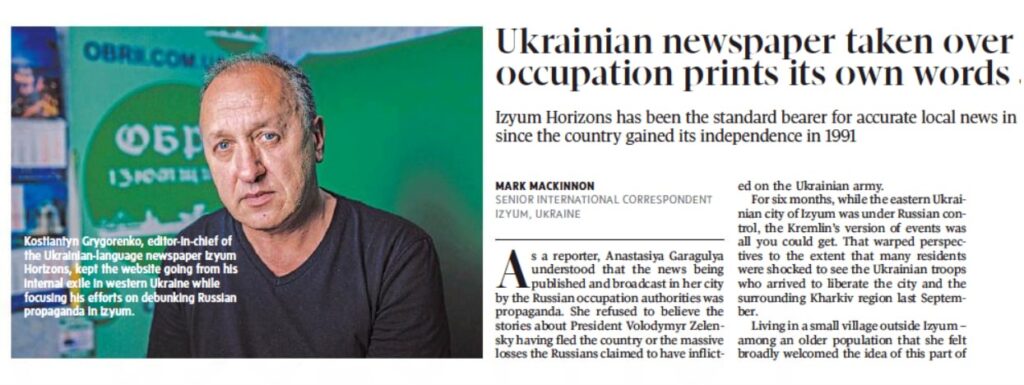
“The Fearless” tells the extraordinary journey of an elite Ukrainian combat unit of the Main Intelligence Directorate: from the heroic rescue of civilians in Kabul in the summer of 2021 to daring operations behind enemy lines during the full-scale Russian invasion. Through the stories of specific individuals — Nazar Borovytsky, “Marcus,” “Shaman,” Dima Loginov, General Kyrylo Budanov — the author shows how the war changed and how Ukrainian warriors adapted to new challenges. Readers learn about operations to rescue those surrounded in Mariupol, the liberation of the Kyiv region, and raids into Russian territory. Special attention is paid to the mission in Kabul, where Ukrainian special forces saved hundreds of civilians, including The Globe and Mail’s translators, when the Taliban was taking over the city. This mission became the starting point for writing the article.
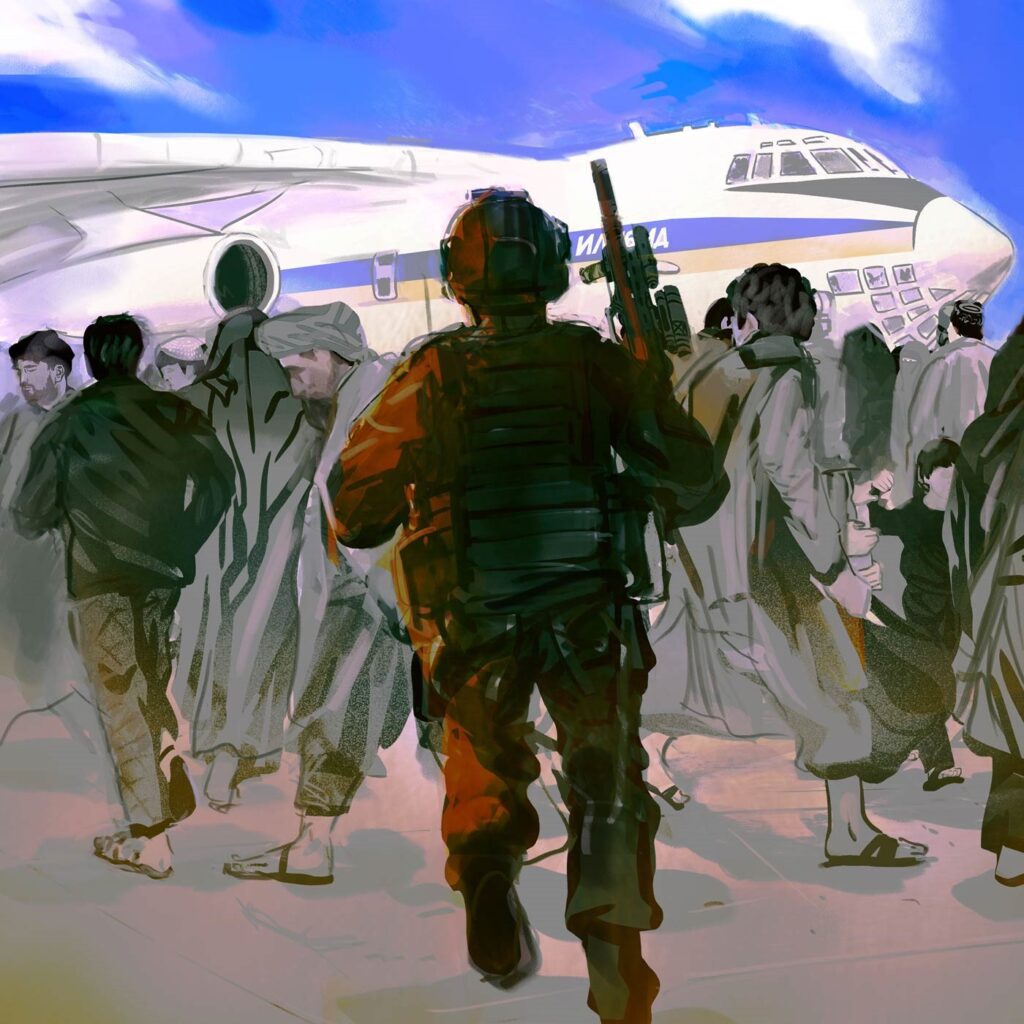
— Mr. MacKinnon, what inspired you to write about “The Fearless”? How long did you work on this story?
“It was really an act of gratitude. Back in the summer of 2021, my translators in Afghanistan were stuck when the Taliban was taking over Kabul. Everyone seemed willing to help — the Canadians, the Americans, the other powers on the ground, NATO — but all the risk was on the Afghans themselves. The Afghans and their families were traveling with their grandmothers, with little kids. They had to run the gauntlet to get to designated meeting points. There must have been half a dozen attempts, and none of them worked out because they couldn’t fight their way through the huge crowds around Kabul airport.
So when I found out in the summer of 2021 that there was a Ukrainian plane on the ground, I reached out to President Zelensky’s office and got approval to get my people onto a flight to Kyiv. All I knew at the time was that it was a Ukrainian plane, and I later came to understand this was a special forces team. And I was, of course, just very grateful for what they’d done.
They were fearless, right? They went into the city, surrounded and escorted the buses with the Globe and Mail’s translators on them, as well as other pro-Western Afghans, and escorted them into the airport. It took me a while to understand who these guys were… Only in the run-up to the big invasion in February 2022, I kept seeing these characters like Marcus and Dima, and I realized they were really important, really key fighters for the defense of Ukraine.
I decided, as an act of gratitude, that I would cover the war from their perspective, something I’m continuing to do. The work on the article continued throughout the war. I slowly gathered material, and in the last nine months, I particularly focused on this investigation.”
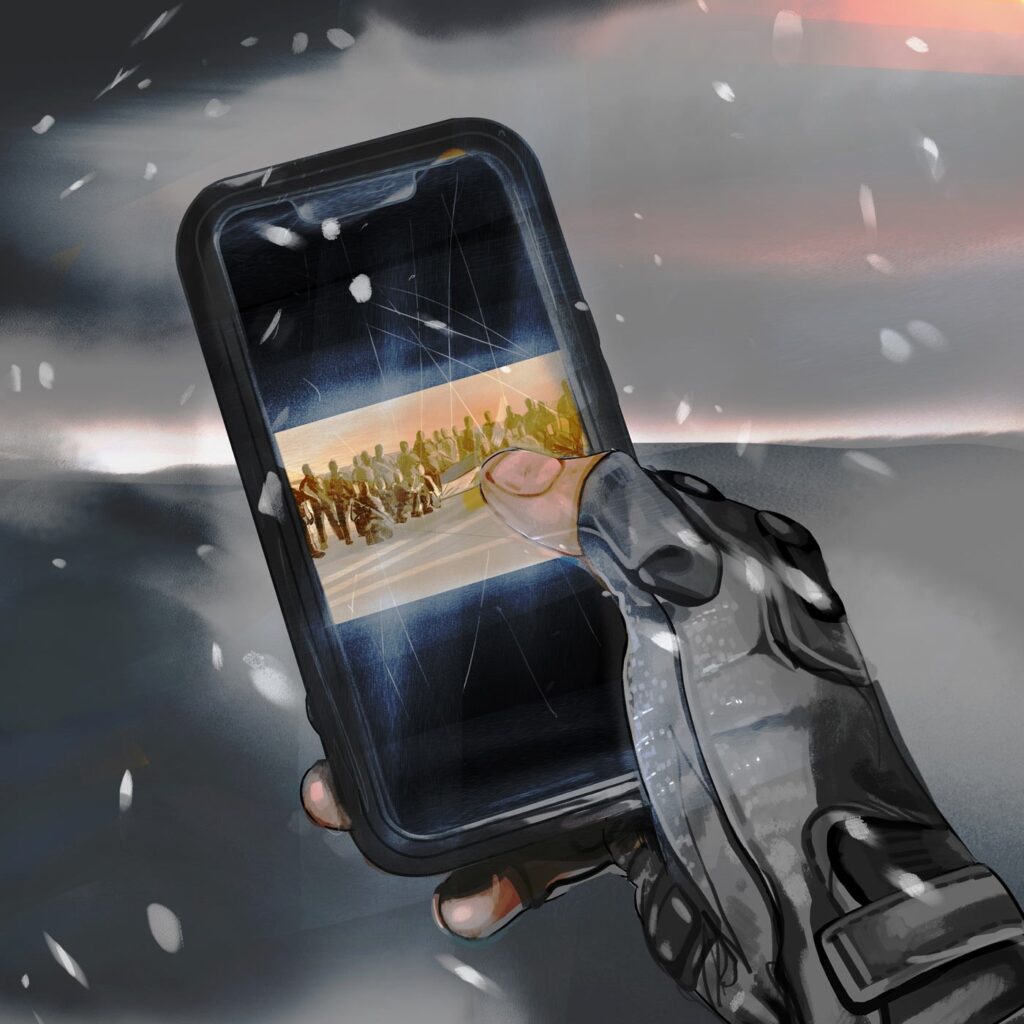
— You dedicated your award to Nazar Borovytsky. What impressed you most about his personality and actions?
“For me, dedicating the award to Nazar was a no-brainer. He was the one who led the charge out into the city of Kabul back in 2021. There was one translator named Fatima who he rescued by putting her on his shoulder and carrying her out of a crowd of Afghan men. And although I never got to meet him personally, his bravery shines through in that story, and also in how he died.
He was part of the team of GUR fighters who were rescuing the injured from the Azovstal steel factory in Mariupol back in the spring of 2022. Everyone was supposed to do one mission. He did two. And then when he heard that some of his comrades had been shot down, he volunteered for a third mission, from which he didn’t return. That’s just the kind of guy he was.
I’ve grown quite close to his family. They’ve been very sweet and kind to me, telling me his story, talking to me about the war from their perspective. So yes, I will always feel indebted to Nazar and to his family.”

— How has working on “The Fearless” affected you personally and professionally?
“It’s created quite a strange situation from a professional point of view. I know more about these men and women than I’m allowed to print. In a state of war, you don’t reveal too much about the personal backstories of special forces fighters because you’re just making targets for the Russians. It’s a strange line for me to walk.
Usually as a journalist, you write down everything you know. But in this case, although I’ve been on missions with members of the Kabul team, I had to sort of just take their stories and trust that they’re telling me the truth. And that trust is based on the relationships built between myself and members of this team going back to the summer of 2021 and the Afghan rescue operation. But it’s been a very different experience for me.”

— How does reporting from Ukraine differ from other conflicts you’ve covered?
“I’ve covered wars in Chechnya, Afghanistan, Iraq, Lebanon, Gaza. The difference is that usually the side I’m reporting from — when you’re in Afghanistan or Iraq — it’s NATO or its allies that have control of the airspace, that have the firepower advantage.
Being in Eastern Ukraine now, or anywhere in Ukraine early in the war, you realize what it’s like to be on the other side, to be on the side that doesn’t have the airpower advantage, to feel that fear that comes with knowing that any vehicle could be randomly targeted.
This is one of the first conflicts where we sometimes take off our press markings. We don’t drive around with press stickers on our vehicles. Sometimes we also remove the ‘Press’ labels from our bulletproof vests. In previous conflicts, in all those places I mentioned, I believed that being a member of the media would give you some protection, that people wouldn’t want to target the messenger, so to speak. Obviously, we don’t believe that in the war in Ukraine. And we see this now in Gaza, where journalists are very much the targets.”

— What is your assessment of the importance of Ukrainian frontline media, and what can you say about journalists who continue to live and work in frontline areas?
“For me, it’s been really very revelatory to visit frontline media, especially in Izyum where I spent quite a bit of time talking to the editor of the ‘Horizons of Izyum’ newspaper. It helped understand what it’s like to live in an information vacuum, what that means for local residents. The importance of frontline media, especially newspapers, in combating that vacuum cannot be overestimated. People are looking for information they can trust, so the work of frontline newspapers that NUJU supports is incredibly important.”
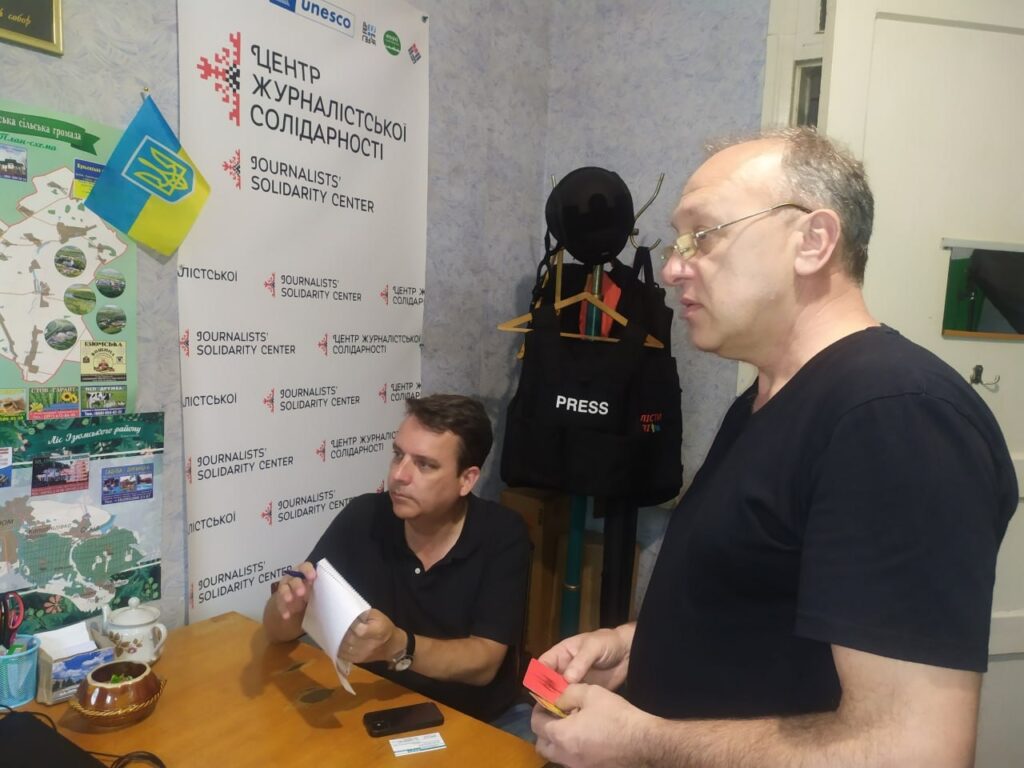
— How has the perception of Ukraine and Ukrainians changed in Canada in recent years?
“I don’t think it has changed substantially. Canada has always been extremely supportive of Ukraine. It was the second country after Poland to recognize Ukraine’s independence in 1991. Canadians, diaspora members, and Canadian diplomats were big supporters of the Orange Revolution and the Revolution of Dignity in 2014.
I think what surprised everyone was the resistance that Ukrainian society and the military put up at the start of the war. No one expected that. Even the Canadian embassy was among those that closed and left before the invasion.
I worry that the perception is starting to change a little bit. I’m concerned that people, not just in Canada but throughout the West, are getting tired of the war, tired of seeing some of their tax money go to support Ukraine. But I hope that Canada will remain an exception in this regard.”
— What advice would you give to journalists who are starting to cover events in Ukraine?
“First of all, no story is worth your life. You have to be extremely judicious. And I say this as someone who during my last trip was right at the front line with members of the Kabul team when they were launching drones into Russia.
We’ve all spent time in Pokrovsk. But you have to be extremely judicious that the story you’re working on is worth the risk you’re taking. This can be really hard when you’re a young journalist or an early-career journalist who is trying, frankly, to make a name for themselves, to stand out among all the journalists covering Ukraine.
But it’s not worth the risk. Sometimes the best stories are the ones you already know, stories about people whose lives you’re living, and the lives around you. Not everybody needs to stand in a trench in Kupyansk to cover this war. Explaining to the world what it’s like to live in Ukraine right now is equally valuable.”

— What stories from Ukraine do you plan to cover in the future?
“That’s a difficult question. No one knows what awaits Ukraine ahead. I think in January there will be a lot of attention on the inauguration and any ‘peace’ initiatives — I put ‘peace’ in quotation marks — that Donald Trump’s team might have in mind. I think the Russians will step up their efforts to take as much of Ukraine as possible before that moment. So obviously, there’s a dark period ahead.
But you know, Ukraine has weathered worse, frankly. And yes, the main thing I plan to do is to keep coming back to Ukraine again and again.”
NUJU Information Service

 THE NATIONAL UNION OF
JOURNALISTS OF UKRAINE
THE NATIONAL UNION OF
JOURNALISTS OF UKRAINE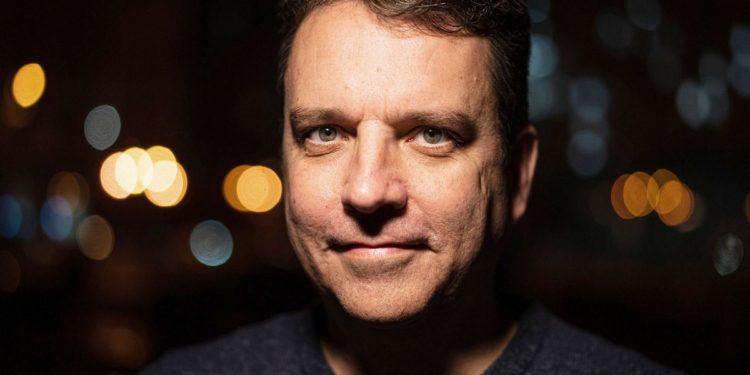
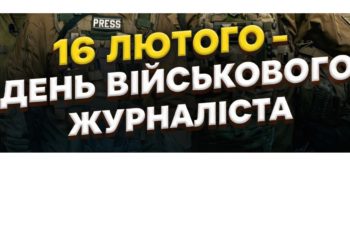
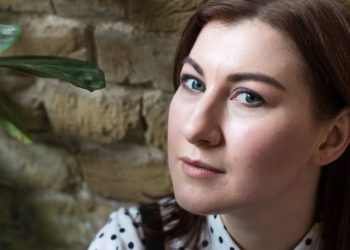














Discussion about this post